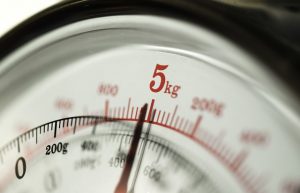
“You shall appoint judges and police in all of your gates, and they will judge the people a righteous judgment.”
Our Parasha begins with instructions to the people of Israel to set up a judicial system in all of their cities and with an admonition to judges to judge their cases fairly. Our Sages teach that all of the Torah portions that we read in the days between Rosh Hodesh Elul and Yom Kippur contain allusions to the battle with the evil inclination, the Teshubah process and character improvement — all the elements necessary for a successful trial on Rosh Hashanah.
The Kli Yakar points out that the verse says, “you shall appoint judges for yourself [Lecha] “–indicating that one should judge himself or herself before they point a finger at others. Check your character and behavior, fix your faults and only then can you judge others fairly. “Appoint judges for yourself” and then you will certainly “judge the people a fair judgment”
Others say that the word “lecha”– “for you” advises one to treat others as they would treat themselves. One should not be strict with others and lenient when it comes to themselves. Rabbi Simha Bunim from Peshischa says that when one is constantly evaluating their own behavior and they realize that they are not perfect then it will certainly lead them to see the strong points in someone else. In other words the verse is telling us that when you “appoint judges for yourself” then certainly you will “judge the people fairly”.
The Shelah HaKadosh sees in this instruction a command to control what goes in and out of you “gates”
A person has eyes, ears, a mouth and nose. To reach spiritual perfection on must set judges and policemen at all of your gates. Should we all exercise caution and monitor carefully what goes in and out of our physical “gates” i.e. what we look at, what we say and what we listen to then we can all be assured of “righteous judgment” on that crucial day Rosh Hashanah.
May we all take advantages of this special period of grace and favor called Elul and concentrate on self improvement and forgiveness so that G-d will also only see good when He judges every individual, every community and every country on this Rosh Hashanah for life filled with blessing and happiness Amen.
ANOTHER LESSON FROM THE PARASHA
You should prepare the way …that every murderer shall flee there. [Debarim 19:3]
The Torah laws about the treatment of an accidental murderer are unique in the world. Man-made law could never imagine the parameters set by our Holy Book in regard to the perpetrator of the death of another. The killer is advised to flee to a city of refuge wherein the relatives are not permitted to kill him in revenge for the death of their loved one. If the murderer fails to enter a refuge city before a relative can catch him then the pursuer may kill the killer. The Torah commands the people of Israel to set signposts along the roads that indicate the safe haven to the fleeing killer. Rab Hamma bar Hanina said: “If for the wicked Hashem shows the path to a refuge from harm, then certainly He does so for the righteous.” Anyone traveling the roads of the Holy Land in the times of the Sanhedrin could see the many directional signs that filled the roads. Where are the signs that Hashem provides for us in our generation?
Halakha means law but it also means the way to walk. If anyone has a question about which way to proceed in almost any life situation one should consult the Halakha. When Yaakob Abinu a’h fell asleep on the Temple Mount he had a prophetic dream that revealed to him the destiny of himself and his offspring throughout history. When he awoke and realized the holy nature of the place where he had slept he exclaimed,” Had I known, I would not have slept in such a holy place.” The import of this statement to all Jews at all times is that Yaakob our Patriarch was willing to forego an essential prophetic message and a promise from Hashem to protect him wherever he would travel in his personal exile and to protect his children throughout their future exiles — if it meant he had to violate the sanctity of the Temple Mount by sleeping there. If the Halakha forbids sleeping in that holy place — so be it. Yaakob Abinu would have found another place to rest.
In every person’s life there are crossroads. Points where decisions that are crucial to success or failure in career, marriage, physical health and spiritual growth must be made. Where should one turn? What direction should one take? Look for the road signs provided by our Heavenly Father. Check with an authority what the Halakha dictates in your personal situation and follow the sign to success. Life’s roads are very confusing and each person has difficulties that may lead him or her down the wrong path to a dead end or h’v to disaster. By following the Halakha one is assured that the path will lead to the end that is best under the circumstances.
Shabbat Shalom
Text Copyright © 2003 Rabbi Raymond Beyda and Project Genesis, Inc.


